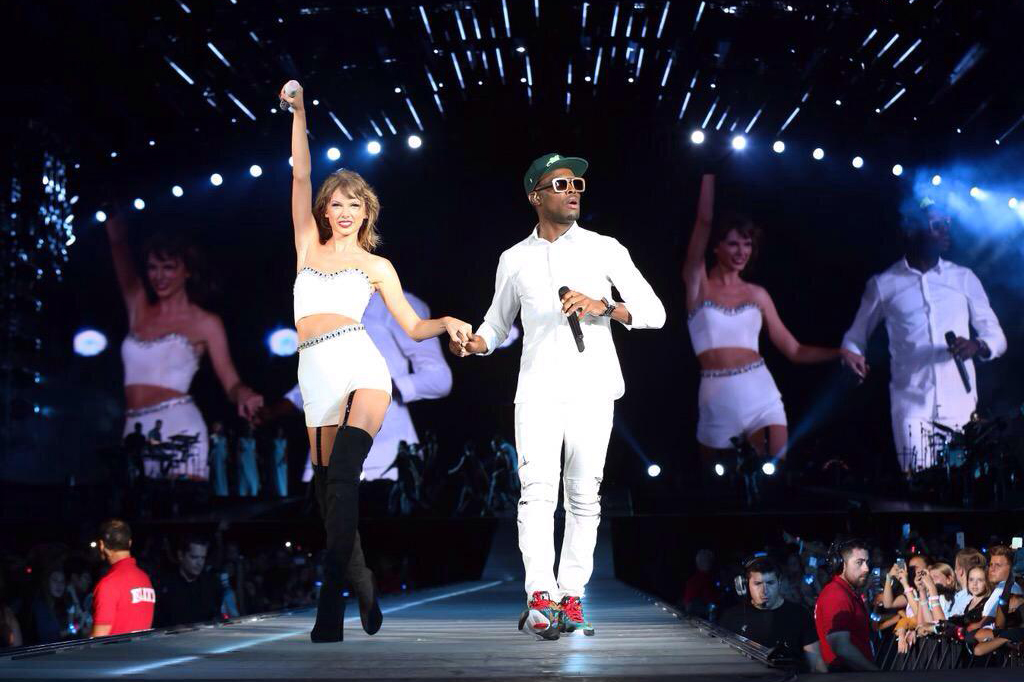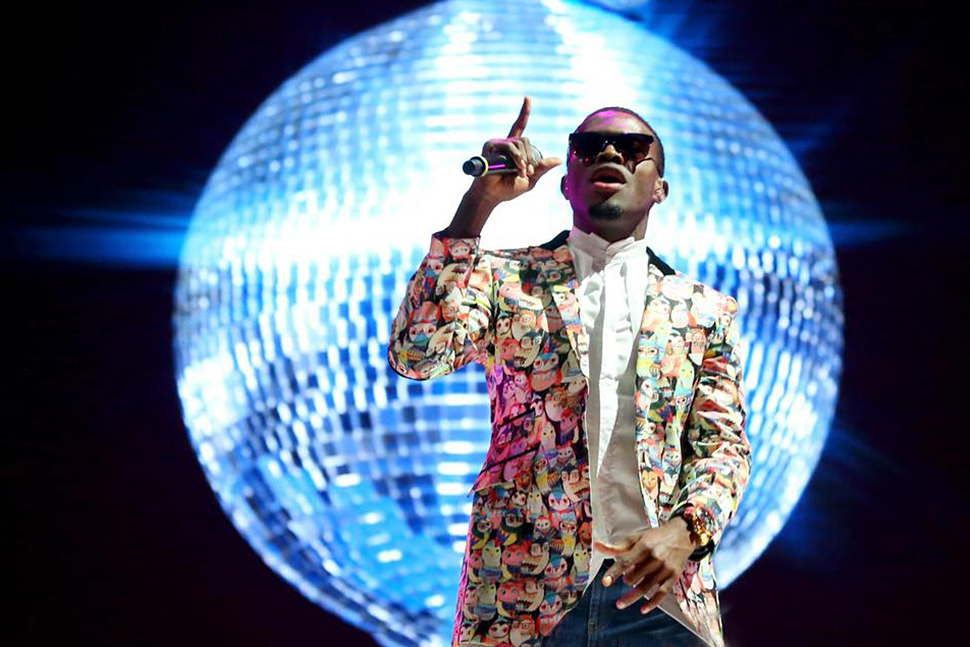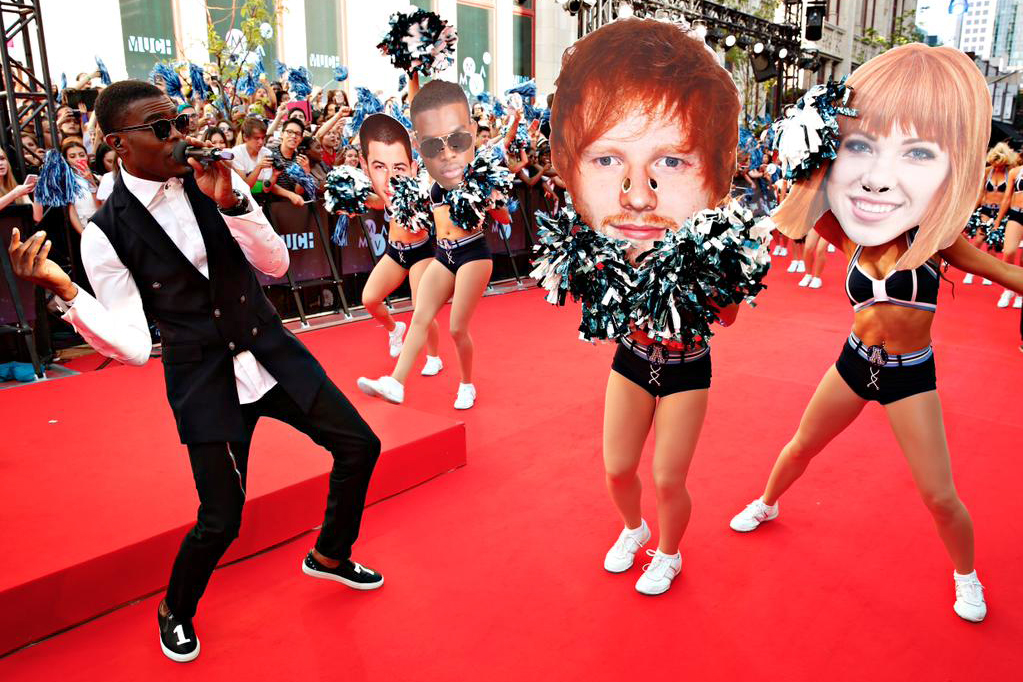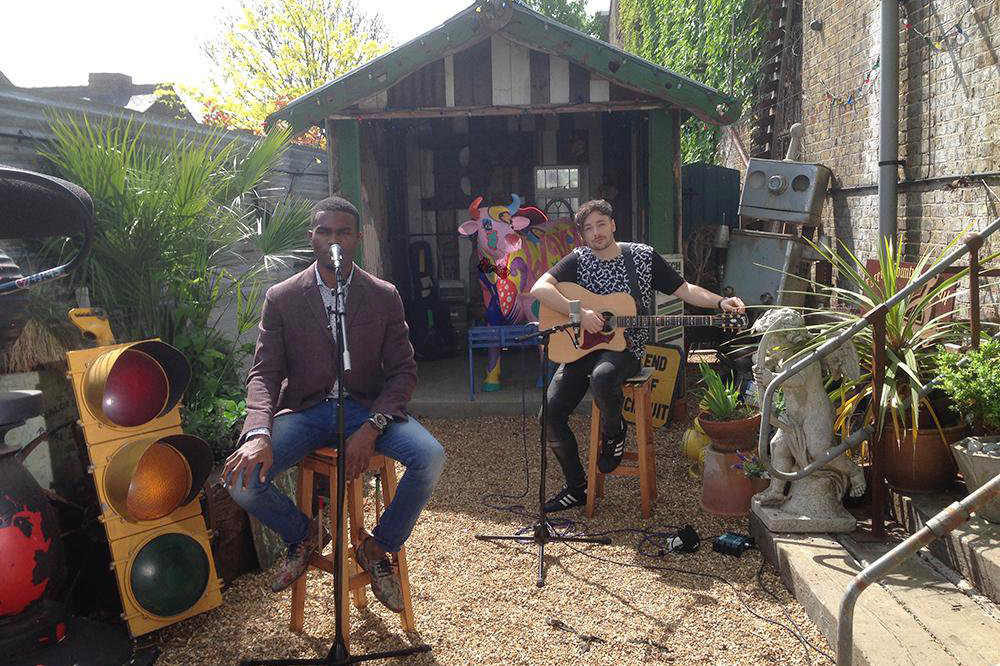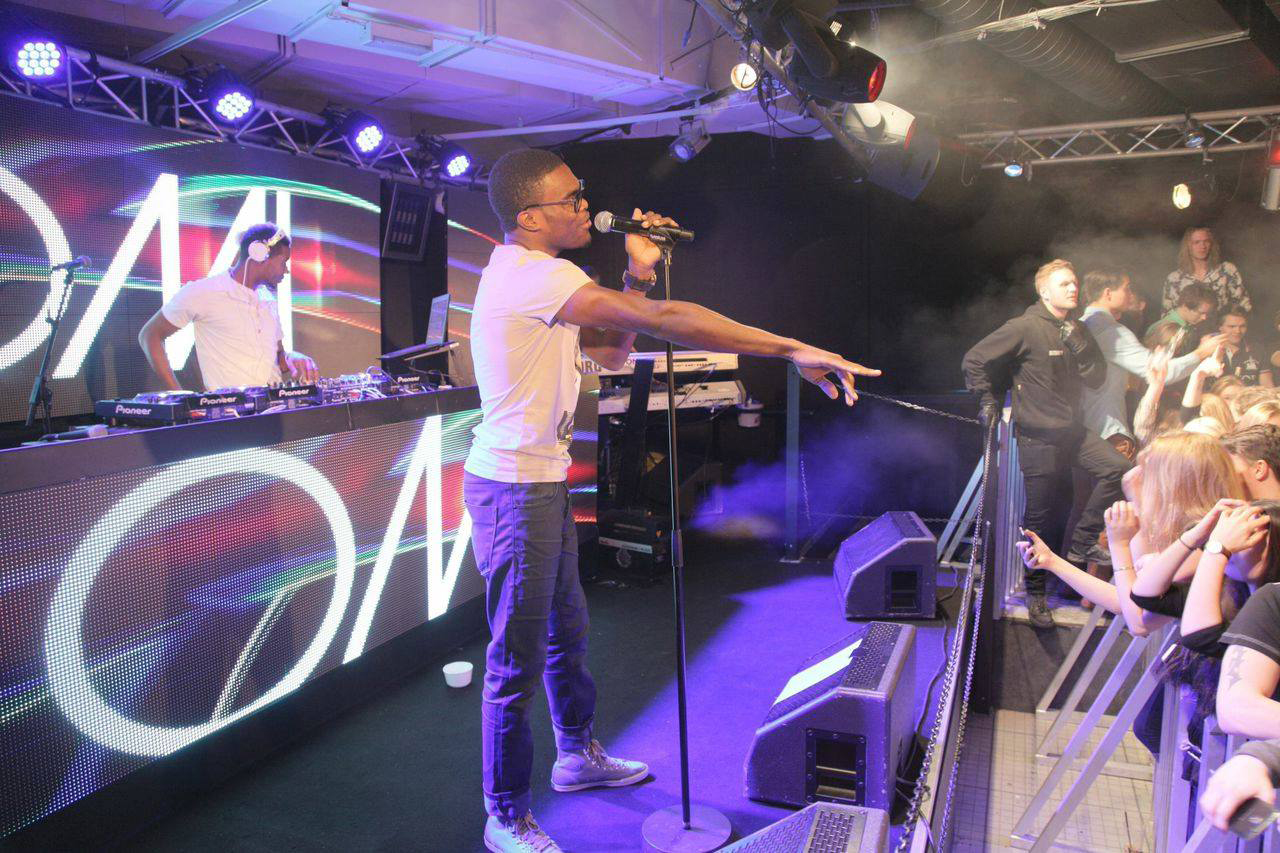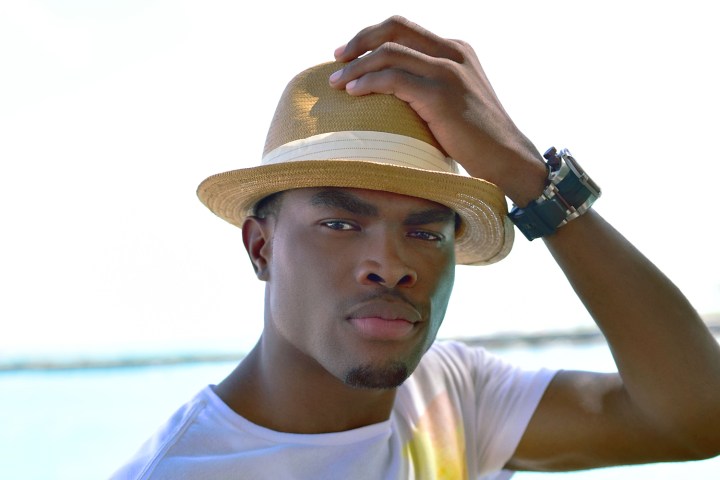
“My voice is different. It’s distinctive. There’s nothing to compare it to.”
The summer of 2015 may be long-faded into the rear view, but some of its hot sounds remain as fresh now as when we first heard them — sounds like those of OMI’s ubiquitous Cheerleader, the tropical house ode to the person who always has your back. It spent six weeks at #1 on Billboard’s Hot 100 chart and has garnered a staggering 459 million Spotify spins to date, and counting.
(You just blinked while reading that previous sentence, and now the count is at 460 million.)
But one monster jam does not a career make, mon, so OMI set out to make a mark with his first full-lengther, ME 4 U, out now from Ultra/Columbia in various formats. The album shows OMI is no one-hit or even one-style wonder, from the finger-snapping pop of Babylon to the electrobeat wash of Stir It to the guitar histrionics that propel Standing on All Threes.

“It’s a global record in so many ways,” says OMI, a native of Jamaica. “It was a joint effort with Mr. Dillon. We put it together as a team.”
The aforementioned Mr. Dillon is Clifton “Specialist” Dillon, the noted Jamaican dancehall-reggae producer of artists such as Shabba Ranks, Mad Cobra, Patra, and Buju Banton. “Of course it is huge. We have a great production team,” OMI continues. “And I’m very grateful for all that’s happened in 2015. Without all of that support, we couldn’t have done it.”
Digital Trends caught up with OMI by phone to discuss how he nailed the exact right vocal vibe for Cheerleader, what German DJ Felix Jaehn added to the mega Cheerleader remix to take it into the stratosphere, and how he feels he’s fulfilling his father’s destiny. I think he made the right selection.
Digital Trends: It’s official, OMI — Billboard declared that you had the biggest hit of the summer of 2015 with Cheerleader, so congratulations.
OMI: Yeah, thanks. That’s been a great experience, man.
One of the things that helped Cheerleader blow up like it did was its infectious melody, something you had in your pocket for a long time.
Yes, yes, definitely. I mean, I wrote the song like eight years ago. It started out as a melody that was in my head, and then came the words. I like to write from a metaphoric standpoint. That’s how the concept really came about.
Originally, it wasn’t supposed to be a song. It was supposed to be an interlude on the album. When I met Mr. Dillon, he thought it was a very catchy melody. That is what the conversation was like; that is what he said. And he predicted it would be a hit.
So we did a third version of the song, and put it out in 2012. A lot of people loved it, and we thought it would do well in 2013. Then Ultra got the project and they loved the song. They wanted to work with it, and remix it. And the rest is history.
The original version that has Dean Fraser’s saxophone on it carries a slightly different rhythm that leaned more toward reggae, wouldn’t you agree?
Of course, of course. Both of these versions are interesting in their own right. I originally worked with Sly Dunbar [of Sly and Robbie, famed Jamaican rhythm section]. Sly was the guy. His drums are amazing. So talented, you know.
And then Felix Jaehn took the vocal track, sped it up, dropped the sax, added trumpet, piano, and a conga beat, and boom — off it went.
Yes. And the fact is that Felix kept true to the essence of the song. He didn’t change much in terms of the feel, but he did speed the tempo up a little bit and gave it a different beat like tropical house. But it wasn’t a crazy turn from the essence of the song, and I respect that.
I also like that your vocals are quite natural, with limited effects on them. That kept it real for me as a repeat listener.
Yeah, it’s nothing much on the vocals. And you know what? A lot of people think I sing with Auto-Tune, but I don’t. That’s the way my voice is, and it’s going to sound a little bit weird when they sped up the track for the remix. But apart from that, there’s nothing on there but the reverb and the normal EQing that you do to get that clean sound to make it radio-ready and listener-friendly. Apart from that, there is nothing on my voice. There are only things to amplify it, but nothing to really change it.
The point is, you are a real singer, and we’re hearing your real voice. It’s not manufactured. You’re in the tradition of a great soul singer, like a modern-day Sam Cooke.
“A lot of people think I sing with Auto-Tune, but I don’t.”
Oh, great! But I can understand people thinking there’s something weird going on. My voice is different, it’s distinctive. That’s the way it is. There’s nothing to compare it to.
How do you want people to listen to the album — do you prefer streaming, hi-res download, or vinyl?
You know what? I think they’re all unique in their own right. Whatever’s easier for the consumer.
What do you do, personally?
I love the hard copy. I love when I can pop a CD in my car.
And you drive an Infiniti, right?
I do. Is that considered advertising? (chuckles) How do you know that?
Well, I did my research.
Oh, you did your research. Of course, of course.
The track that I think is the best one to hear in the car environment is Hitchhiker. For one thing, I love the surface noise we get on the beginning and end of it.
Right, right — and when that bass drops, it’s crazy.
Oh yeah — it totally gave my subwoofer a workout! I also like that Standing on All Threes has some nice guitar figures on it. Overall, the album is quite diverse.
I think it’s just a well-balanced album. When you’re listening to it as a consumer, you have so much to choose from. It doesn’t just appeal to one set of people. We have accomplished something major by making it like this.
Do you have a personal favorite album that still sticks with you?
[Eminem’s] The Eminem Show (2002), always. I started out on rap music. The lyrical compositional aspect of it is something that I really believe in — using words to paint a picture.
Is there a song you’d like to sink your teeth into as a singer, one that paints a great story that you feel you could put your own spin on?
As a matter of fact, it’s interesting you mention that. As an artist, you want to challenge yourself and keep being creative. I was kind of brainstorming and thinking about which songs I could bring back from the past and make really interesting sound updates to. I’m thinking about my favorites, and some of the greats.
I could see you do something like (Sittin’ on) The Dock of the Bay —
I mean, a little Otis Redding never hurt anybody, right? The Stax, Motown, and Muscle Shoals styles all seem well suited for your voice.
(chuckles) Oh, that’s interesting.
“My voice is distinctive. There’s nothing to compare it to.”
When you have one big song, people can tend to overlook the rest of the album. But then you get to tracks like Hula Hoop and Hitchhiker, and they show there’s some depth to the artist.
That’s what the album is about — diversity, and getting to know the artist on a different level. At the end of the day, I think this album highlights different aspects of me as an artist. There’s an overall range that may have surprised a lot of people.
Would you say your own personal biggest cheerleader is your mom? How does she feel about your success?
She’s very proud. This was something my father was pursuing before he died. He never had the opportunity to fulfill his dream, so it means a lot to her. She respects me for becoming something that fulfills that dream.
It’s in the DNA. Your father was also a singer.
Yeah, he was a singer and a songwriter, with a really interesting vocal approach. I’m here to carry on that legacy, and I’m happy for that.
Did he get to record anything? Maybe there’s some kind of duet in the offing.
I have records of him, yeah. I might just use some of his vocals next time.
I can also hear a little Peter Tosh in what you’re doing. Is he an influence?
Definitely. In those days when you had Bob Marley and Peter Tosh, they both had their own character and their own style. You respect that and you have to contribute to that, to keep it going and growing.
Do you have a favorite Marley song or album?
My favorite Bob Marley song of all time is Turn Your Lights Down Low [from 1977’s Exodus]. I love that song.
What a great choice. There’s such a great groove on that song. Speaking of great grooves, one last thing about Cheerleader — you and Felix have yet to meet in person, is that right?
No, we didn’t get to meet. We spoke on the phone, but that’s as far as it goes. I’m looking forward to meeting him.
Are you also looking forward to playing live with a full band?
Definitely! The fact that I have an album out now makes it easier to tour and to do a full set with familiar songs that people can sing along to, as opposed to having just one song for people to sing along to. That makes it better. And the interaction is always a different vibe with a full band onstage.
Maybe you could bring Felix out on tour to join you onstage every night.
I think that would be nice. That would be a good gesture.

